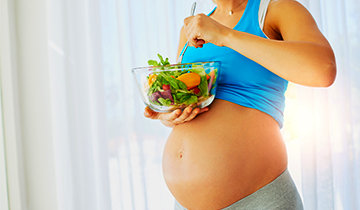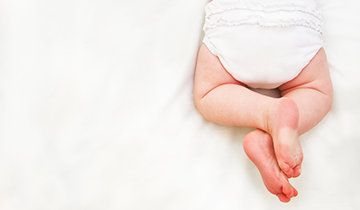- Home
- Blog
- Mom & Baby Care
5 Effective Tips For New Moms To Speed Up Postpartum Recovery
Mom & Baby Care
5 Effective Tips For New Moms To Speed Up Postpartum Recovery
By Apollo 24|7, Published on- 29 May 2023, Updated on -16 June 2023
Share this article
0
7 likes

Becoming a mother is one such unique experience that brings immense joy and fulfilment to a woman. However, there's no denying that it also comes with its share of challenges, especially in the first few weeks after delivery. From learning how to breastfeed to finding the best way to calm their newborn, a new mother has a lot of things on her mind.
After childbirth, a woman's body undergoes significant changes– physically, mentally, emotionally and psychologically, and needs time to heal and recover. Therefore, new mothers must take care of themselves and prioritise their recovery.
This healthcare blog aims to provide useful tips and recommendations for new mothers on how to promote healing and speed up their physical recovery after delivery.
Tips to Promote Healing and Speed Up the Physical Recovery
-
Diet and nutrition
Nutrition plays a critical role in postpartum recovery for new mothers. Eating a well-balanced, nutrient-dense diet promotes healing and restores energy levels.
- Most doctors advise new mothers to eat foods high in protein, iron, and calcium as they help replenish the body's nutrients and support breast milk production. This is particularly helpful for women who are following exclusive breastfeeding.
- New mothers should include plenty of fruits, vegetables, whole grains, and healthy fats in their daily diet.
- Foods that should be avoided include those high in saturated and trans fats, caffeine, and alcohol.
- Staying hydrated and drinking plenty of water throughout the day, and getting an adequate amount of rest is also important.
2. Support from loved ones
Social support is incredibly important for new mothers during the postpartum period. A social support system can provide emotional encouragement and help relieve stress. Some tips for seeking support include:
- Reaching out to family and friends
- Joining a new mother's group
- Attending parenting classes
- Seeking professional help (if needed)
Family members or other new mamas can help determine the best formula for breastfed babies and assist you in overcoming breastfeeding challenges.
-
Gentle exercises
Gentle exercises are highly beneficial for new mothers postpartum as they improve circulation, promote healing, and reduce muscle tension and soreness. Some recommended exercises for new mothers include Kegel exercises, pelvic tilts, and gentle stretches.
Walking is also an excellent low-impact exercise that can be started as soon as a woman feels comfortable. However, women must listen to the body and not push too hard, especially in the first few weeks after delivery. Always consult with your healthcare provider before starting any exercise routine, especially if they had a complicated delivery or cesarean section.
-
Postpartum care and instructions
Following postpartum care instructions provided by the doctor is crucial for new mothers. These instructions usually include taking prescribed medications, keeping the incision site clean and dry, avoiding heavy lifting or strenuous activities, and attending follow-up appointments. A few other commonly prescribed postpartum instructions include:
- Performing pelvic floor exercises
- Proper wound care
- Gentle stretching to reduce muscle soreness
Following these instructions diligently can help mothers ensure a faster and smoother recovery and minimize the risk of complications.
New mothers must remember, taking care of themselves during the postpartum period is not selfish, rather, it's necessary for both the mother's and baby's health. So, make self-care a priority, and don't hesitate to ask for help when needed. With time, patience, and self-love, new mothers can recover fully and embrace this new chapter of their lives with confidence and joy.
Consult Apollo’s Expert Gynaecologists
FAQs
1. What is the 5-5-5 rule for postpartum recovery?
The 5-5-5 rule recommends new mothers stay 5 days in bed (complete bed rest), 5 days on the bed (make little movements) and 5 days near the bed (slowly regain activities while taking ample rest). This allows new mothers to rest for at least two weeks after childbirth.
2. How many days of rest does a woman need after childbirth?
While there is no specific time for the amount of rest a woman needs, recovery completely from childbirth may take anything between 6 to 8 weeks.
3. How long do vaginal tears take to heal after childbirth?
The vaginal tears are usually stitched post-childbirth to encourage faster healing. It may take 2 to 4 weeks for the wound to heal completely.
4. Can I climb the stairs after delivery?
Since healing after childbirth can take a few weeks, new mothers are advised to avoid strenuous activities till they are comfortable. However, light activities like walking and climbing stairs are usually considered safe.
5. When do you get your first period after birth?
The first period after birth varies for women. While some get it five to six weeks after childbirth, it may take a few months for others.
Medically reviewed by Dr Sonia Bhatt.
Services
Mom & Baby Care
Leave Comment
Services
Recommended for you

Mom & Baby Care
Food to Reduce Infertility Rate in Women’s
Infertility is the inability of the male or female reproductive system to achieve pregnancy. It affects millions of people worldwide. According to the World Health Organization (WHO), approximately 48 million people live with infertility globally.

Mom & Baby Care
Healthy Parents make Healthy Babies
Healthy Parents make Healthy Babies - The importance of a mother’s nutrition and overall well-being for a baby's health

Mom & Baby Care
How to Prevent and Treat Diaper Rash: Everything You Need to Know
Diaper rash is a very common problem that can occur in both infants and toddlers. It can cause a great deal of discomfort for your child, and it can be frustrating trying to figure out how to treat it.
Subscribe
Sign up for our free Health Library Daily Newsletter
Get doctor-approved health tips, news, and more.


